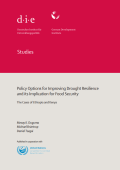
The study Policy Options for Improving Drought Resilience and Its Implication for Food Security: The Cases of Ethiopia and Kenya presents and critically examines the drought policies and institutional frameworks of two African countries frequently challenged by droughts - Ethiopia and Kenya.
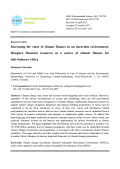
The paper Increasing the Value of Climate Finance in An Uncertain Environment: Diaspora Financial Resources as a Source of Climate Finance for Sub-Saharan Africa undertook an analysis of project reports, policy reviews, policy briefs, and academic literature reviews on the barriers and opportunities for private investments in climate change programmes.
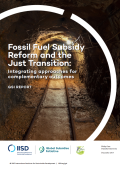
The report Fossil Fuel Subsidy Reform and the Just Transition: Integrating Approaches for Complementary Outcomes articulates how fossil fuel subsidy reform (FFSR) can contribute to a just transition, and how a just transition framework can contribute to successful reform.
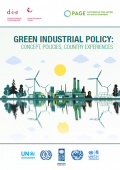
The Green Industrial Policy: Concept, Policies, Country Experiences report provides an overview of the debate on green industrial policy, highlights what countries can gain economically from pursuing environmental integrity, and explores the policy options available to accelerate the transformation in ways that enhance both human well-being and environmental sustainability.
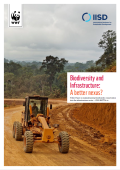
The paper Biodiversity and Infrastructure: A Better Nexus? discusses the catalytic opportunities for integrating biodiversity conservation into infrastructure development, particularly through the use of nature-based solutions and natural infrastructure.
